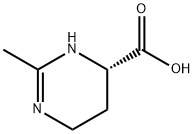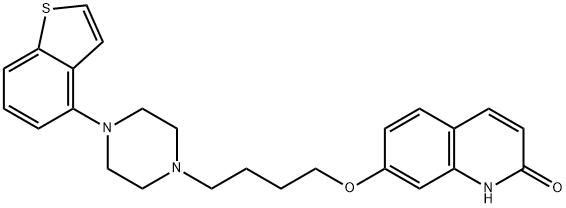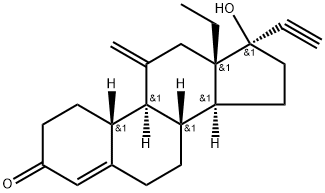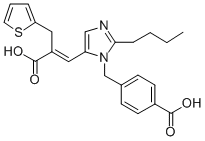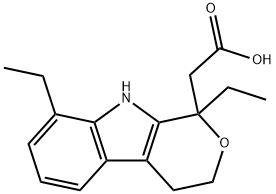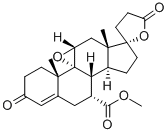Eprinomectin
Synonym(s):(4′’R)-4″-(Acetylamino)-4″-deoxy-avermectin B1 solution;(4′’R)-4″-(Acetylamino)-4″-deoxy-avermectin B1;Eprinomectin;Mixture of component B1a and component B1b
- CAS NO.:123997-26-2
- Empirical Formula: C50H75NO14
- Molecular Weight: 914.1288
- MDL number: MFCD29924103
- EINECS: 602-966-4
- SAFETY DATA SHEET (SDS)
- Update Date: 2024-11-19 23:02:33
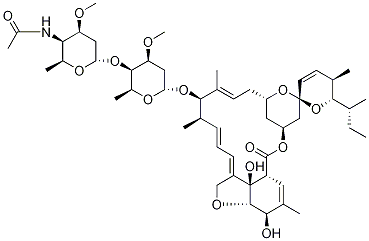
What is Eprinomectin?
Description
Eprinomectin is a semisynthetic avermectin that consists of a mixture of two homologues, eprinomectin B1a (4 epi-acetylamino-4 -deoxy-avermectin B1; 90%) and eprinomectin B1b (10%).Eprinomectin was developed as a topical endectocide for all categories of cattle including lactating dairy cattle, and the process by which eprinomectin was selected for further development has been described (90). Briefly, several hundred avermectin/ milbemycin analogues were screened in a sheep model for efficacy against a range of endoparasites and in lactating dairy cows for a low milk:plasma partitioning ratio. Themilk:plasma ratio for eprinomectin is <0.2; ivermectin, by comparison, partitions equally between milk and plasma.
Description
Eprinomectin is an avermectin with anthelmintic and insecticidal activities. It is comprised of eprinomectin B1a and eprinomectin B1b . Eprinomectin (≥0.08 mg/kg, applied topically) reduces worm burden by 99% or more in bovine models of adult H. placei, O. ostertagi, T. axei, Cooperia punctata, N. helvetianus, O. radiatum, or D. viviparus infection. It also reduces parasite burden in bovine models of horn fly (H. irritans) or mange mite (C. bovis) infestation, as well as in cows naturally infested with lice (L. vituli), when applied topically at doses ranging from 0.16 to 0.5 mg/kg. Formulations containing eprinomectin have been used in the treatment and control of a variety of endo- and ectoparasites in cattle.
Chemical properties
Crystalline Solid
The Uses of Eprinomectin
Eprinomectin is a mixture of eprinomectins B1a and B1b in a 9:1 ratio, produced from a mixture of avermectin B1a and B1b. Eprinomectin is used commercially as a topical endectocide (insecticide, miticide and nematocide) for cattle, including lactating dairy cows. Like all avermectins and milbemycins, eprinomectin acts by binding to parasite glutamate-gated chloride ion channels and disrupts neurotransmission leading to paralysis and death of the parasite, mite or insect.
The Uses of Eprinomectin
A mixture of semi-synthetic Avermectins; containing 90% or more of component B1a and 10% or less of component B1b. Antiparasitic
The Uses of Eprinomectin
A mixture of Eprinomectin B1a and B1b showing anti-anthelintic activity
What are the applications of Application
Eprinomectin is a mixture of Eprinomectin B1a and B1b showing anti-anthelintic activity
brand name
Eprinex [Veterinary](Merial).
Veterinary Drugs and Treatments
In cattle, eprinomectin is indicated for a variety gastrointestinal
roundworms including
adult and L4 stages of Haemonchus placei,
Ostertagia ostertagi, Trichostrongylus axei and colubriformis,
Cooperia oncophora/punctata/surnabada, Nematodirus helvetianus,
Oesophagostomum radiatum, Bunostomum phlebotomum, and
Trichuris spp. (adults only); cattle grubs; lice; mange mites; horn
flies (for 7 days after treatment), and lungworms (Dictyocaulus
vivaparus—for 21 days after treatment).
Topical eprinomectin may be useful for the topical treatment
of ear mites (Psoroptes cuniculi) in rabbits. One small study (6 subjects)
showed partial response when rabbits were dosed at 5 mg/kg
topically, twice at 14 day intervals. (Ulutas, Voyvoda et al. 2005)
Toxicity evaluation
Acute oral LD50 for rats: 55mg/kg
Properties of Eprinomectin
| Melting point: | 163-166°C |
| Density | 1.23 |
| Flash point: | 2 °C |
| storage temp. | 2-8°C |
| solubility | DMF: 30 mg/ml; DMSO: 30 mg/ml; Ethanol: 30 mg/ml |
| form | Solid |
| form | neat |
| color | White to off-white |
| Stability: | Hygroscopic |
Safety information for Eprinomectin
| Signal word | Danger |
| Pictogram(s) |
 Skull and Crossbones Acute Toxicity GHS06  Health Hazard GHS08  Environment GHS09 |
| GHS Hazard Statements |
H301:Acute toxicity,oral H361:Reproductive toxicity H410:Hazardous to the aquatic environment, long-term hazard |
| Precautionary Statement Codes |
P201:Obtain special instructions before use. P273:Avoid release to the environment. |
Computed Descriptors for Eprinomectin
Eprinomectin manufacturer
Diligent Life Care
New Products
Tert-butyl bis(2-chloroethyl)carbamate 4-Methylphenylacetic acid N-Boc-D-alaninol N-BOC-D/L-ALANINOL N-octanoyl benzotriazole 3-Morpholino-1-(4-nitrophenyl)-5,6-dihydropyridin- 2(1H)-one Furan-2,5-Dicarboxylic Acid DIETHYL AMINOMALONATE HYDROCHLORIDE 1,1’-CARBONYLDIIMIDAZOLE R-2-BENZYLOXY PROPIONIC ACID 1,1’-CARBONYLDI (1,2-4 TRIAZOLE) N-METHYL INDAZOLE-3-CARBOXYLIC ACID (2-Hydroxyphenyl)acetonitrile 4-Bromopyrazole 5-BROMO-2CYANO PYRIDINE 5,6-Dimethoxyindanone 5-broMo-2-chloro-N-cyclopentylpyriMidin-4-aMine 2-(Cyanocyclohexyl)acetic acid 4-methoxy-3,5-dinitropyridine 1-(4-(aminomethyl)benzyl)urea hydrochloride 2-aminopropyl benzoate hydrochloride diethyl 2-(2-((tertbutoxycarbonyl)amino) ethyl)malonate tert-butyl 4- (ureidomethyl)benzylcarbamate Ethyl-2-chloro((4-methoxyphenyl)hydrazono)acetateRelated products of tetrahydrofuran
You may like
-
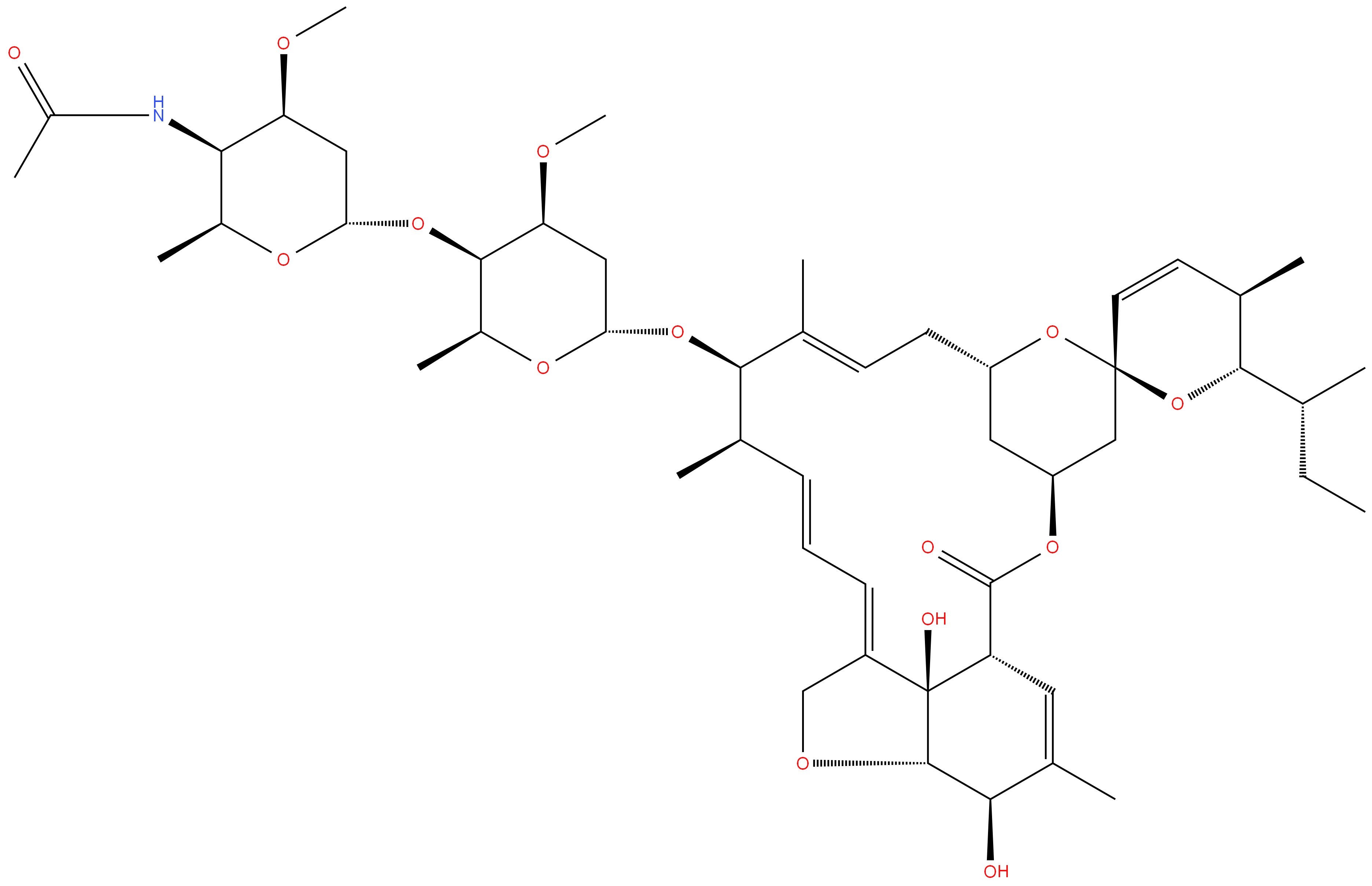 123997-26-2 Eprinomectin 98%View Details
123997-26-2 Eprinomectin 98%View Details
123997-26-2 -
 Eprinomectin 90% (HPLC) CAS 123997-26-2View Details
Eprinomectin 90% (HPLC) CAS 123997-26-2View Details
123997-26-2 -
 Eprinomectin CAS 123997-26-2View Details
Eprinomectin CAS 123997-26-2View Details
123997-26-2 -
 1975-50-4 98%View Details
1975-50-4 98%View Details
1975-50-4 -
 2-HYDROXY BENZYL ALCOHOL 98%View Details
2-HYDROXY BENZYL ALCOHOL 98%View Details
90-01-7 -
 14714-50-2 (2-Hydroxyphenyl)acetonitrile 98+View Details
14714-50-2 (2-Hydroxyphenyl)acetonitrile 98+View Details
14714-50-2 -
 118753-70-1 98+View Details
118753-70-1 98+View Details
118753-70-1 -
 733039-20-8 5-broMo-2-chloro-N-cyclopentylpyriMidin-4-aMine 98+View Details
733039-20-8 5-broMo-2-chloro-N-cyclopentylpyriMidin-4-aMine 98+View Details
733039-20-8

